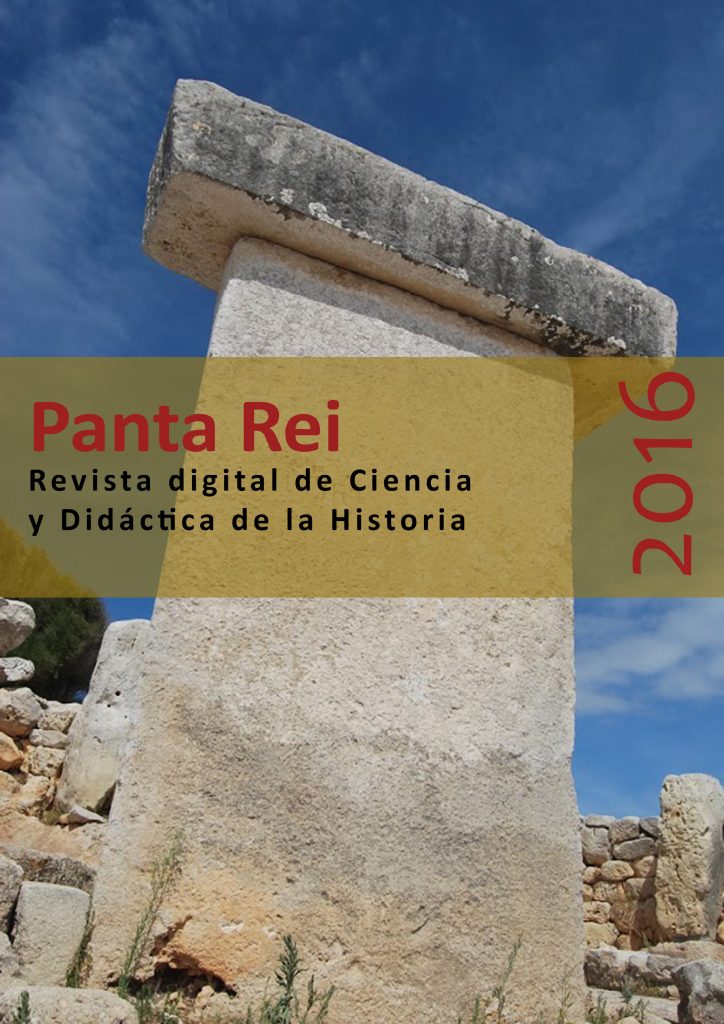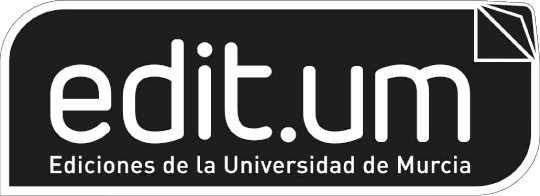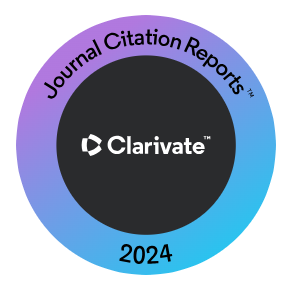Ancient History in the Bibliotheca of Photius
Abstract
In this paper, we study the references to historical books present in the Bibliotheca of Photius, twice a Patriarch of Constantinople, and a prolific writer of the 9th Century. In our study, we shall see the historiographic interests of Photius, mainly the lineal writing with not too many facts in them and a descriptive narrative. We shall know that in his age, books already unknown for us were at disposal, at least in Constantinople. Photius is an author to be known and read for both, historians and people interested in writing of History.
Downloads
-
Abstract489
-
PDF (Español (España))157
References
Amerio, M. L. (2006). Appiano in Fozio. Quaderni di Storia 32, 303-309.
Ahrweiler, H. (1965). Sur la carrière de Photius avant son patriarcat. Byzantinische Zeitschrift 58, 348-363.
Bevegni, C. (1996). La Biblioteca di Fozio e la sua origine. Humanitas: Rivista Bimestrale di Cultura 51, 326-347.
Blumenthal, H. J. (1978). 529 and after: What happeneed to the Academy?, Byzantion: Revue Internationale des Études Byzantines 8, 369-385.
Casson, L. (2003). Las bibliotecas del mundo antiguo. Barcelona: Bellaterra.
Cavallo, G. (1995). Libros, editores y público en el mundo antiguo. Madrid: Alianza Editorial.
Coppola, C. (1981). L’Historia Romana di Appiano e i Parthica di Arriano nella Biblioteca di Fozio. En I. Gallo (Dir.), Studi salernitani in memoria di R. Cantarella (pp. 475-491). Salerno: Universitá di Salerno.
Dain, A. (1954). La transmission des textes littéraires classiques de Photius à Constantin Porphyrogénète. Dumbarton Oaks Papers 8, 33-47.
Escolar, H. (2001). La Biblioteca de Alejandría. Madrid: Gredos.
Fernández, G. (1983). Justiniano y la clausura de la escuela de Atenas. Erytheia, 2, 24-30.
Hägg, T. (1973). Photius at work. Evidence from the text of the Bibliotheca. Greek, Roman and Byzantine Studies 14, 213-222.
Hägg, Th. – Treadgold, W. (1986). The preface of the Bibliotheca of Photius once more. Symbolae Osloenses: Norwegian Journal of Greek and Latin Studies 61, 133-138.
Halkin, F. (1963). La date de composition de la Bibliothèque de Photius remise en question. Analecta Bollandiana: Revue Critique d’Hagiographie 81, 414-417.
Kaldellis, A. (2012). The Byzantine role in the making of the corpus of classical historiography: a preliminary investigation. Journal of Hellenic Studies 132, 71-85.
Lemerle, P. (1990). Libri, studi e scelte di lettura di un dotto bizantino: Fozio. En G. Cavallo (Ed.). Libri e lettori nel mondo bizantino. Guida storica e critica. Roma-Bari: Laterza, 65-84.
Maas, M. (1990). Photius’ treatment of Josephus and the high priesthood. Byzantion 60, 183-194.
Maraglino, V. (2007). Reconsidering the date of Photius’ «Bibliotheca»: the biographical tradition of Gregory the Great in chapter 252. Ancient Society 37, 265-278.
McGilvery, P. (2014). Arrian’s Events After Alexander in Photius. Halifax: Dalhousie Univ.
Mendels D. (1986). Greek and Roman history in the Bibliotheca of Photius. A note. Byzantion 56, 196-206.
Nogara, A. (1978). Sergio il confessore e il cod. 67 della Biblioteca di Fozio patriarca di Costantinopoli. Aevum 52, 261-266.
--- (1975). Note sulla composizione e la struttura della Biblioteca di Fozio, Patriarca di Costantinopoli. Aevum 49, 213-242.
Oikonomidès, N. (1972). Les Listes de préséance byzantines des Ixe et Xe siècles. París: CNRS.
Ottone, G. (2013). «In corsa nello stadio della storia»: Eforo e Teopompo secondo Fozio. Parola del Passato: Rivista di Studi Antichi 68, 241-288.
Posadas, J. L. (2005). Raíces tardo romanas de la Universidad europea: la Universidad Imperial de Constantinopla. En G. Bravo Castañeda - R. González Salinero (Eds.), La aportación romana a la formación de Europa: naciones, lenguas y culturas (207-214). Madrid: Signifer.
Reynolds, L. D. y Wilson, N. G. (1986). Copistas y filólogos. Las vías de transmisión de las literaturas griega y latina. Madrid: Gredos.
Ronconi, F. (2013). The Patriarch and the Assyrians: new evidence for the date of Photios’ «Library». Segno e testo: International Journal of Manuscripts and Text Transmission 11, 387-395.
Sánchez León, M. L. (1981-1985). En torno a la transmisión de la obra de Agatárquides. Hispania Antiqua 11-12, 183-195.
Sanz Morales, M. (2008). La literatura griega: períodos y géneros. En P. Hualde Pascual – M. Sanz Morales (Eds.). La literatura griega y su tradición (7-21). Madrid: Akal.
Schamp, J. (1987). Photios historien des lettres. La Bibliothèque et ses notices biographiques. Paris: Les Belles Lettres.
--- (1982). A propós du Plutarque de Photios. Revue des Études Grecques 95, 440-452.
Smithies, A. (2013). Nicetas David: The life of Patriarch Ignatius. Washington: Dumbarton Oaks Studies.
Stickler, T. (2014). Das Geschichtswerk des Olympiodor von Theben. En B. Bleckmann – T. Stickler (Eds.), Griechische Profanhistoriker des fünften nachchristlichen Jahrhunderts (85-102). Stuttgart: Steiner.
Treatgold, W. T. (1980). The nature of the Bibliotheca of Photius. Washington: Dumbarton Oak Studies Studies.
--- (1978). Photius on the transmission of texts (Bibliotheca, Codex 187). Greek, Roman and Byzantine Studies 19, 171-175.
Wilson, N. G. (1994). Filólogos bizantinos. Madrid: Alianza Editorial.
--- (1968). The composition of Photius’ Bibliotheca. Greek, Roman and Byzantine Studies 9, 451- 455.
Fuentes
The Library of Photius. Londres: MacMillan, vol. I. 1920 (traducción de J. H. Freese). Photius: the Bibliotheca. Londres: Duckworth. 2002 (selección y traducción de N. G. Wilson).
Copyright (c) 2020 Juan Luis Posadas Sánchez

This work is licensed under a Creative Commons Attribution-ShareAlike 4.0 International License.
All the contents published in this journal are subject to an Attribution-ShareAlike 4.0 International (CC BY-SA 4.0) Creative Commons License. You are free to: Share — copy and redistribute the material in any medium or format, Adapt — remix, transform, and build upon the material, for any purpose, even commercially. Under the following terms:
Attribution — You must give appropriate credit, provide a link to the license, and indicate if changes were made. You may do so in any reasonable manner, but not in any way that suggests the licensor endorses you or your use.
ShareAlike — If you remix, transform, or build upon the material, you must distribute your contributions under the same license as the original.
Full text of the license is available in: Creative Commons License 












